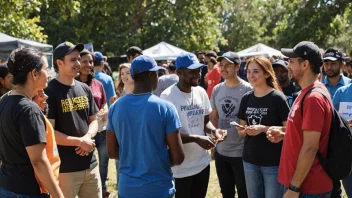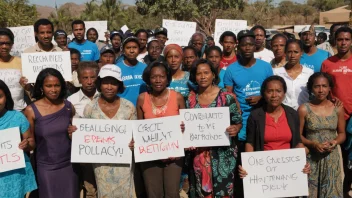In an increasingly complex financial landscape, the importance of financial literacy cannot be overstated. For many individuals, particularly in underserved communities, understanding the basics of budgeting, saving, investing, and credit management is not just a matter of personal finance; it is a vital skill that can lead to empowerment and improved quality of life. Financial literacy serves as a foundation for economic stability, allowing individuals to make informed decisions that enhance their financial well-being. Community programs designed to promote financial literacy play a crucial role in equipping individuals with the knowledge and skills necessary to navigate financial challenges, ultimately fostering a sense of agency and resilience.
The Importance of Financial Literacy
Financial literacy encompasses a range of skills and knowledge that enable individuals to understand and effectively manage their financial resources. This includes the ability to create a budget, comprehend interest rates, recognize the implications of debt, and make informed decisions regarding savings and investments. The lack of financial literacy can lead to a cycle of poverty, as individuals may struggle to make ends meet, accumulate debt, or miss opportunities for wealth building. By promoting financial literacy, communities can break this cycle, empowering individuals to take control of their financial futures.
Community Programs Making a Difference
Across the globe, numerous community-based initiatives are dedicated to enhancing financial literacy. These programs often take a multifaceted approach, incorporating workshops, one-on-one coaching, and online resources to reach diverse audiences. Here are a few notable examples:
- Neighborhood Financial Empowerment Centers: Many urban areas have established centers that offer free workshops on budgeting, saving, and credit management. These centers often partner with local banks and credit unions to provide practical insights and resources to participants.
- School-Based Financial Literacy Programs: Some communities have integrated financial literacy into school curriculums, teaching students about personal finance from a young age. This early education helps instill good financial habits that can last a lifetime.
- Nonprofit Initiatives: Organizations like Junior Achievement and Operation HOPE focus on providing financial education to youth and adults alike. They often leverage volunteers from the finance sector to share their expertise and mentor participants.
- Online Learning Platforms: With the rise of technology, many community programs now offer online courses that cover various aspects of financial literacy. This accessibility allows individuals to learn at their own pace and revisit complex topics as needed.
How Individuals Can Get Involved
Getting involved in promoting financial literacy within your community can take many forms. Here are some ways individuals can contribute:
- Volunteer as a Mentor: Consider sharing your financial expertise by volunteering with local organizations that focus on financial education. Your knowledge can make a significant impact on someone else's financial journey.
- Attend Workshops: Participate in or promote financial literacy workshops in your area. Engaging in these programs not only enhances your own knowledge but also helps raise awareness about the importance of financial education.
- Advocate for Financial Literacy in Schools: Reach out to local schools or educational boards to encourage the inclusion of financial literacy in the curriculum. Your advocacy can help shape the future of financial education for young people.
- Share Resources: Utilize social media and community networks to share valuable resources, articles, and tools related to financial literacy. Spreading information can inspire others to take action.
Challenges and Opportunities
Despite the growing recognition of the importance of financial literacy, several challenges remain. Many individuals still lack access to quality financial education due to socioeconomic barriers, cultural differences, and varying levels of financial knowledge. Additionally, misinformation and myths about finance can hinder individuals from seeking help or making informed decisions.
However, these challenges also present opportunities for growth and innovation. By leveraging technology, communities can develop scalable solutions that reach a broader audience. Online courses, mobile apps, and social media campaigns can help disseminate information quickly and effectively. Furthermore, partnerships between nonprofits, educational institutions, and local businesses can create a more robust support system for financial literacy initiatives.
Conclusion
Financial literacy is a powerful tool for empowerment, enabling individuals to take control of their financial futures and break free from the cycle of poverty. Community programs dedicated to promoting financial education play a vital role in equipping individuals with the knowledge and skills they need to thrive. By getting involved and advocating for financial literacy, we can collectively contribute to building stronger, more resilient communities. As we work together to address the challenges and seize the opportunities in financial education, we pave the way for a brighter and more equitable future for all.






